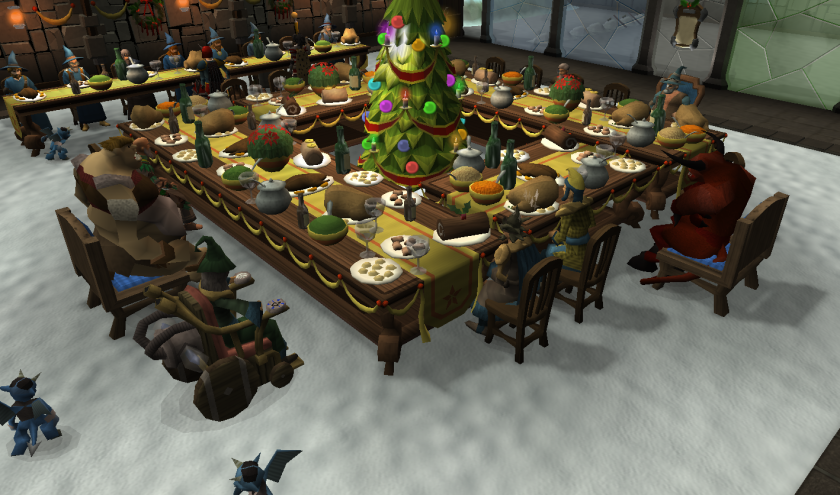
Runescape: Betrayal at Falador is the first novel by T.S Church set in the world of Gielinor, envisioned by Jagex, more specifically the city of Falador and the White approximate king place approximately five years before the events of the game (the quest storyline), we find the world entering into chaos. As the White Knights work to retrieve the demolished statue of a famous knight, a mysterious woman appears out of nowhere and near death. To the north, the evil Kinshra (black knights) under the leadership of Lord Sulla plot to sack Falador and conquer the region. Closer to home, a mysterious creature is murdering travelers, and the White Knights suspect a traitor is among them.
Betrayal at Falador is a treasure trove of Runescape lore, featuring everyone you would expect in the area around Falador: white knights, black knights, the dwarves, the Humans Against Monsters cult, as well as plenty of known names. Going into the book, my initial fear was that the characters in TS Church’s mind wound contradict the personalities presented in the game. Instead, Church goes to great lengths to preserve the quirks and details of each personality, reinforcing that this is in fact a Runescape book rather than a fantasy novel with some two-dimensional representations slapped on.
Betrayal at Falador follows an enormous cast of major and minor characters, and tends to jump around quickly between them often times offering not much more than a quick scene. In fact, a majority of the book’s chapters are only two or three pages long, with a couple single pagers thrown in. Oddly enough, this works to the book’s credit. Church manages to keep an appropriate pace throughout, shortening and lengthening each character’s part as needed without fluffing or needlessly slashing any details.
The story is tense, and the characters are fleshed out enough that you actually care when one of them dies, even if they play a relatively minor role in the story. That being said, Church employs one of my most hated methods of storytelling, the convenient obscurity. I can better explain by giving an example: one character is hunting another character, but does not refer to him by name. Only after a convenient reveal is the character referred to by name, both in the narrative and in dialog (internal and external). A small complaint, but I find it obnoxious when one character refers to his prey as his prey for several chapters, but once the person is revealed in another chapter in another location entirely, all of a sudden he feels comfortable referencing by name.
Church installs some interesting takes on the Runescape lore. The mysterious woman appears by way of a Ring of Life, a magical artifact which teleports someone near death to Falador. The ring is described as rare and powerful, and only fifty existing in the world, while in the game itself the ring of life is the product of a rather low level magical spell. The wizards are able to do far more with the runes of magic than players. Additionally, Church sets out a world large enough to remind us that what we play in the game is really just a miniaturized version of the full deal. Falador, housing less than a hundred NPCs in game, plays home to hundreds if not thousands of citizens. A trip to Taverly, mere minutes in the virtual world, is a multiple day trip for our heroes.
Runescape: Betrayal at Falador suffers from what I call Skywalker Syndrome, which plagues any story where the prequel releases years after the sequel. If you’ve played Runescape, you already have a good idea who is going to die. After all, if the person is present in the game, they lived. If they are prominent and do not appear in the game, they probably die. Overall the story is still suspenseful and engaging enough to keep the reader engaged, and Church was smart enough to cast the lead role as a character whose fate is left uncertain.
Runescape: Betrayal at Falador cost me over $40 USD when I bought it in 2009, because I ordered the hardcover copy at Jagex’s website and paid twice the cost of the book in shipping from the UK. Still, the book is worth every penny, even though you will spend considerably less than I did by buying the paperback at your local boom store. Likewise, you can purchase it in ebook format and save more money and trees. The book is about 400 pages.
The sequel, Return to Canifis, I will review when I have an opportunity to read it.

GJ omali.
TBH when we first heard the title we were expecting to explore more on the “darkness” within the white knight / temple knights that the in game characters were always complaining about, . But anyways, the author did do a fascinating job on getting the reader constantly hooked on.
I have Return to Canifis, the two Guild Wars 2 books, the three Hellgate London books, and Death Troopers on my shelf waiting to be read and reviewed. I took advantage of the 80% off sale when Borders went bankrupt and went a little overboard.